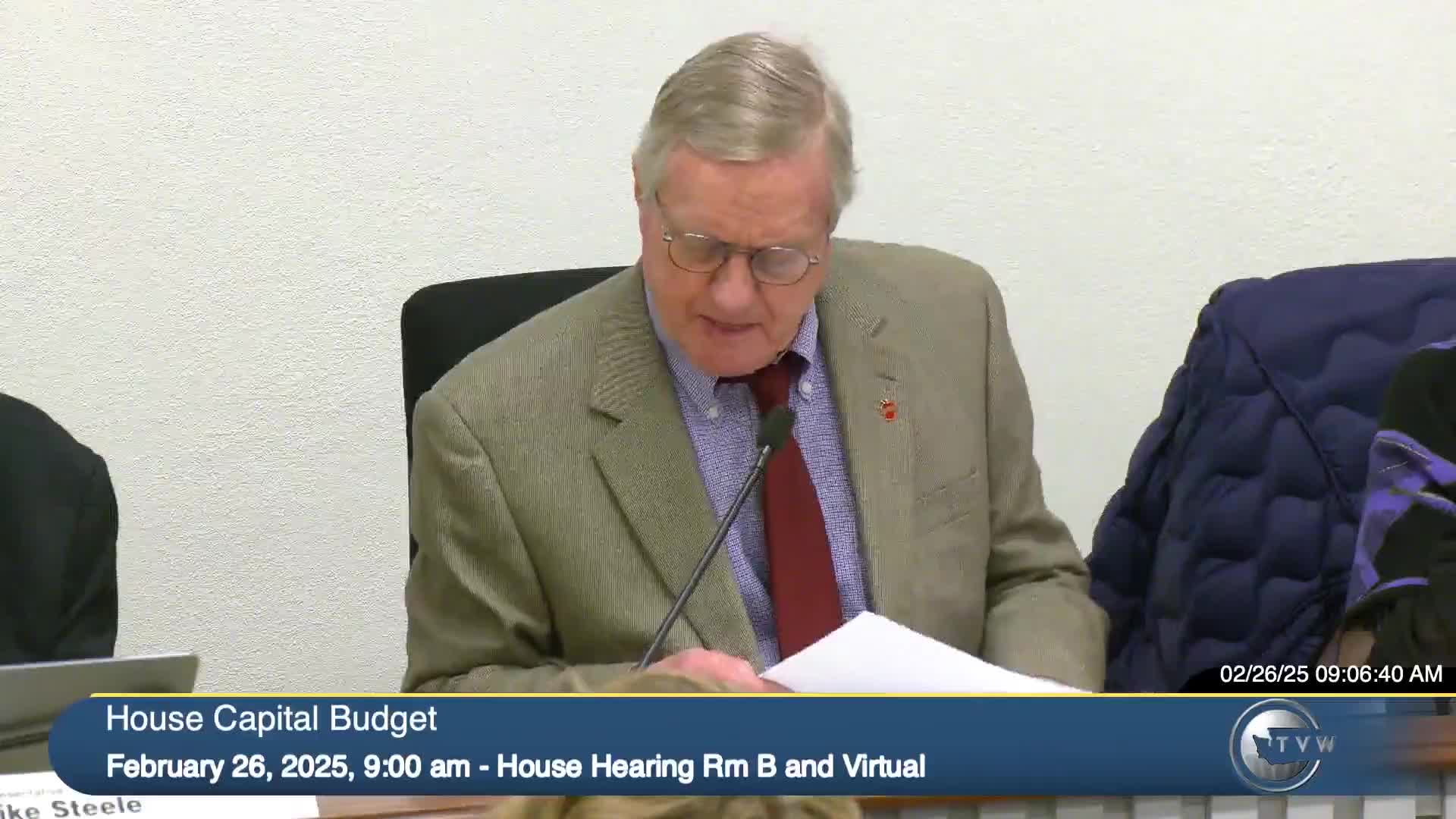Committee forwards transit-oriented development bill after marathon amendment debate

Summary
Substitute House Bill 1491, which would set state rules and incentives for transit-oriented development (TOD), was reported out of the Capital Budget Committee Feb. 26 after extensive amendment votes addressing affordability thresholds, station-area radiuses, floor-area ratios and preemption language. The committee recommended the bill 11–8.
The Capital Budget Committee on Feb. 26 reported Substitute House Bill 1491 out of committee with a due-pass recommendation after a lengthy amendment process over transit-oriented development (TOD) standards, affordability thresholds and local control.
Don Eichner, committee staff, told the panel the substitute contained 14 separate amendments. Committee discussion focused on affordability income limits, the walking-distance definition for station-area planning, floor-area ratio rules, whether a Commerce-published model ordinance should preempt local rules, and whether common-interest-community rules should be constrained by state TOD requirements.
Why it matters: the bill would affect cities’ TOD regulations, density and affordability rules, and potentially access to state and federal funding tied to multifamily development and tax-exemption incentives. Cities, housing advocates and local officials weigh the potential housing gains near transit against concerns about local planning authority and feasibility.
Major amendments and outcomes
- ICH 328 (Representative Walsh) narrowed legislative intent language; the committee rejected the amendment.
- ICH 330 (Representative Walsh) would have changed affordability limits for owner-occupied housing from 80% AMI to 140% AMI; the amendment was defeated after members warned it could jeopardize public funding eligibility.
- Amendment ICH 145 (Representative McClintock) reduced the station-area walking distance for cities under 15,000 residents from one-half mile to one-quarter mile; committee adopted the amendment to give small cities a tighter radius.
- ICH 329 (Walsh) to expand walking distance to 1 mile for rail and bus station areas was withdrawn to avoid conflict with the McClintock amendment.
- ICH 332 (Walsh) would have removed provisions related to floor-area ratio incentives and exemptions; the amendment failed after members said it would remove incentives to build family-sized units.
- ICH 326 and ICH 325 (Representative Steele) sought flexibility for cities and required Commerce guidance and grants timed at least 12 months before compliance deadlines. ICH 325 also required Commerce to develop guidance and provide grants sufficient to cover full compliance costs; the committee debated but ultimately did not adopt all proposed flexibility amendments.
- ICH 333 (Walsh) would have prevented Commerce from publishing a model ordinance that would preempt local development regulations; the amendment failed.
- ICH 335 (Walsh) removed limits on minimum parking requirements; the amendment failed.
- SIRI 144 (Representative Zahn), a technical fix from Ecology, was adopted and clarifies SEPA categorical-exemption exceptions.
- WILLS 046 and WILLS 045 (Representative Walsh) sought to carve out common-interest communities (HOAs and condominium declarations) and to remove a section imposing requirements on city governing authorities; both failed.
Final action
The committee incorporated a subset of amendments into the second substitute and moved the bill out of committee with a due-pass recommendation. The clerk announced the final tally as 11 aye, 8 nay do not pass.
Debate highlights
Representative Walsh repeatedly offered amendments framed as protecting local control and simplifying the bill (for example, removing presumed preemption by a Commerce model ordinance and reducing FAR-related incentives), while proponents of the bill argued those changes would undermine the bill’s purpose to increase density and affordability near transit.
Representative McClintock said the quarter-mile radius amendment for small cities was a “much more workable solution.” Representative Steele and others pushed several amendments to give cities more time and grant support to meet new standards; some of those amendments were debated but did not carry.
What’s next: With the committee recommendation, the bill proceeds to the next legislative step. Committee members signaled further work may still be needed to reconcile local control, funding eligibility and feasibility concerns raised during the hearing.

